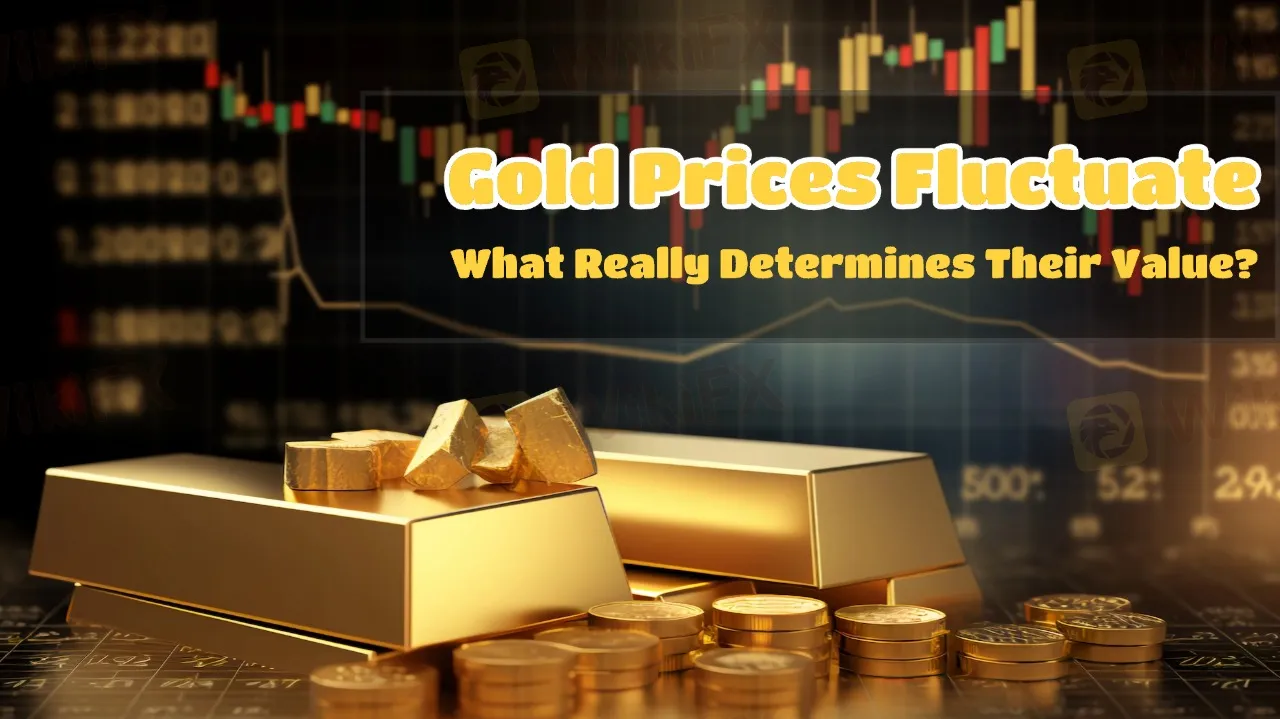简体中文
繁體中文
English
Pусский
日本語
ภาษาไทย
Tiếng Việt
Bahasa Indonesia
Español
हिन्दी
Filippiiniläinen
Français
Deutsch
Português
Türkçe
한국어
العربية
Gold Prices Fluctuate: What Really Determines Their Value?
Abstract:Gold prices have been fluctuating recently, influenced by multiple factors. Since the beginning of 2025, gold has risen by 11%, hitting new historic highs multiple times in the first quarter.

Global central banks continue to increase their gold reserves, while market expectations for Federal Reserve rate cuts have pushed gold prices higher. Meanwhile, there has been a divergence in the precious metals market, with silver, platinum, and palladium prices declining, while investors risk aversion is increasingly focused on gold.
Why are gold prices so volatile?
Gold prices are affected by a variety of factors, including Federal Reserve monetary policy, the movement of the dollar, and market risk aversion. Recently, Federal Reserve Chairman Jerome Powell acknowledged the uncertainty surrounding the economy but has refrained from quickly adjusting policies, which has increased expectations for rate cuts, causing the dollar index to drop.
Typically, a weaker dollar enhances gold's attractiveness. In addition, central banks around the world continue to buy gold to diversify risk from dollar assets, providing further support for gold prices. Meanwhile, ETF inflows have been rising, pushing gold holdings to the highest level in over a year, further boosting market sentiment.
Looking ahead, the gold market will still face many uncertainties. The extent of the Federal Reserve's rate cuts will directly affect gold price movements. If the cuts exceed expectations, gold prices could potentially break the $3,000 per ounce mark.
On the other hand, if the U.S. economys “transition period” leads to more significant market turmoil, risk aversion could further drive up gold prices. However, if economic data improves and expectations for rate cuts diminish, gold prices could face downward pressure.
As market volatility intensifies, investors should closely monitor global economic conditions and Federal Reserve monetary policy to adjust their asset allocations wisely, in order to navigate the continued fluctuations in the gold market.
Disclaimer:
The views in this article only represent the author's personal views, and do not constitute investment advice on this platform. This platform does not guarantee the accuracy, completeness and timeliness of the information in the article, and will not be liable for any loss caused by the use of or reliance on the information in the article.
Read more

WeTrade Secures CySEC License to Expand EU Trading Services
WeTrade secures a CySEC license, allowing EU-wide operations. The approval boosts services, partnerships, and trust across the global trading community.

Elites Gather in Taipei to Forge a New Forex Ecosystem
On April 19, the exclusive cocktail party hosted by WikiFX Elites Club concluded successfully in Taipei. The event brought together local forex industry leaders, seasoned experts, and elite practitioners to discuss industry trends and share cutting-edge insights. It fully demonstrated WikiFX’s irreplaceable value as a globally leading forex investment ecosystem platform in gathering industry wisdom and driving sector development.

Why Trade Agreements Matter to Nations
In today’s interconnected world, trade agreements serve as the foundation for stable and predictable international commerce.

Trade Fights Are Heating Up—What Happens Next?
Global financial markets have become increasingly reactive to even minor developments in international trade talks.
WikiFX Broker
Latest News
eXch Exchange to Shut Down on May 1 Following Laundering Allegations
Think Scams Won’t Happen to You? That’s Exactly What Scammers Count On
Beware of Gold Bar Investment Scams: Rising Threats
Kraken Launches Forex Perpetual Futures on Kraken Pro Platform
Elites Gather in Taipei to Forge a New Forex Ecosystem
WeTrade Secures CySEC License to Expand EU Trading Services
Over $4 Billion Laundered Through Crypto Scams in Paraguay
Currency Calculator


